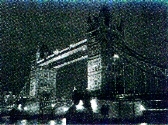题目内容
---How often do you call your parents?
--- ,but usually once a week.
A. Forget it B. Once in a while
C. It depends D. I’ve no idea
C
【解析】
试题分析:考查惯常用语辨析。A. Forget it不必在意;休想:B. Once in a while偶尔;有时; C. It depends视情况而定:D. I’ve no idea我不知道;“--你多久给你父母打一次电话?--是情况而定,但通常一个星期一次”;故选C.
考点:考查惯常用语辨析。

练习册系列答案
 名校课堂系列答案
名校课堂系列答案
相关题目
 lace. I found out that a long time ago, it was a prison. Later it a castle for the royal family. Or maybe it is not; I’m not . But later they left this place and lived in Buckingham Palace and Kensington Palace.
lace. I found out that a long time ago, it was a prison. Later it a castle for the royal family. Or maybe it is not; I’m not . But later they left this place and lived in Buckingham Palace and Kensington Palace. le. You will find lots of there. If you have time, you can feed them and they will be very . You can buy special food for them, but be ! Tons of birds are going to you if you feed them.
le. You will find lots of there. If you have time, you can feed them and they will be very . You can buy special food for them, but be ! Tons of birds are going to you if you feed them.